How ‘blood mineral’ traders in Rwanda are helping fund Congo rebels – and undermining global supply chains
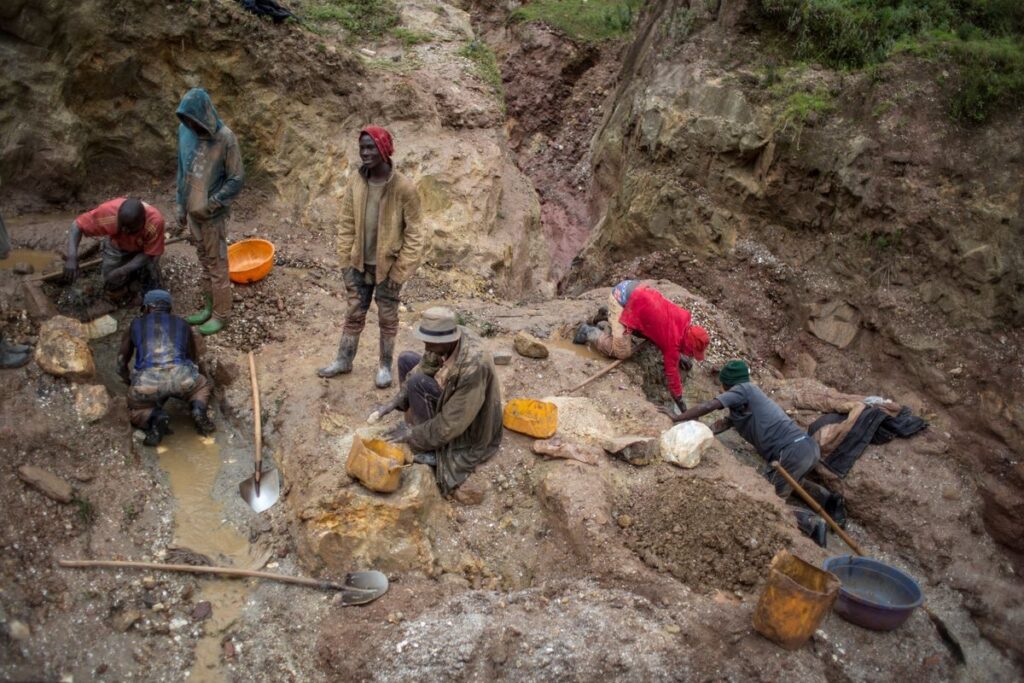
New evidence from a United Nations report and a high-profile investor arbitration case is casting a spotlight on Rwanda’s role in sophisticated smuggling networks that extract gold and coltan from Congolese conflict zones and funnel the strategically important minerals illicitly into the global supply chain for consumer products such as cellphones, computers and jewellery.
The smuggling is also fuelling military and human-rights abuses in Central Africa, while damaging the region’s corporate-supported efforts to regulate the minerals trade, the evidence suggests.
Experts have been aware of the smuggling for many years, but fresh details from UN researchers and filings in the case have revealed how these networks are flourishing in Rwanda and the Democratic Republic of the Congo (DRC), even as governments claim to be cleaning up the underground trade.
The UN report uses photos, interviews with smugglers and other sources to document the trafficking of minerals across the border into Rwanda, where they are exported into the world’s supply chains. The arbitration case has included testimony from mining company executives who confirm the smuggling.
The illicit trade would explain how Rwanda has become one of the world’s biggest coltan exporters, despite having few producing mines of its own. The smuggling also jeopardizes efforts to ensure consumers can make ethical decisions on avoiding “blood minerals” – as the conflict-linked minerals are sometimes called.
As a result, Western consumers of tech gadgets and jewellery have no assurances their purchases aren’t contributing to conflicts and abuses in Congo. And the new evidence adds to doubts about Rwanda’s much-touted economic miracle, which has attracted billions of dollars from donors and foreign aid budgets over the past quarter century.
Rwanda’s mining sector, with revenue officially listed at US$412-million annually, is the country’s second-biggest export earner and one of the key industries it has claimed as proof of a diversified economic boom. Industry revenue has increased steadily for years, adding to Rwanda’s soaring GDP.
But recent studies in academic journals have questioned the country’s economic statistics. The new reports of smuggling could spark questions from investors and donors about the true state of Rwanda’s economy.
The latest report by the UN Group of Experts on the DRC, submitted to the UN Security Council in June, describes how gold and coltan are smuggled across the border from the DRC to Rwanda, where taxes are much lower. The coltan is often concealed in canoes and other boats on Lake Kivu, which straddles the border between the two countries, or hidden in secret compartments in trucks.
In one incident in March, a truck crossing the border from the DRC to Rwanda was found to be carrying 24 sacks of smuggled coltan. The UN report includes photos of 10-kilogram and 20-kilogram bags of coltan in the eastern DRC, sold by unregistered traders to Rwandan buyers on smuggling routes. It also contains interviews with mineral smugglers who talked openly about the illicit routes across Lake Kivu to Rwanda.
“It is Rwandans who use these kinds of boats a lot,” one smuggler told the UN researchers. “This is how they cross to Rwanda and no one controls them.”
UN experts have been reporting on the illicit trade of minerals in the region for the past two decades. Despite some improvements, the smuggling continues to fuel conflict and instability in the DRC, they said in their latest report. Mining in the region “remains hazardous, exposed to violence and abuses and often lacking proper and transparent governance by all parties,” the report said.
The UN researchers cited the Rubaya area of the eastern DRC, which provides an estimated 15 per cent of the world’s coltan supply. Despite regulations aimed at guaranteeing that global coltan supplies are not fuelling conflict, researchers found evidence of armed clashes, weapons distribution and other abuses at coltan mining sites around Rubaya.
Machetes and Kalashnikov assault rifles were among the weapons distributed to diggers at mines for use in clashes, the report said. Armed men – including police – set fire to shops and houses, imprisoned some diggers and beat some of them, with two deaths confirmed. Mineral trafficking and fraud were common at the mines.
The UN report is backed up by evidence from a U.S. mining investor, Bay View Group, in an arbitration case at the International Centre for Settlement of Investment Disputes, a World Bank institution.
Bay View, one of the biggest investors in Rwanda’s mining sector from 2006 to 2016, is now seeking US$95-million in damages from the Rwandan government, alleging the regime seized the company’s assets because it refused to participate in the “rampant illegal smuggling” of coltan and other Congolese minerals to Rwanda. One company concession was near the Congolese border, which would have made it “an ideal staging ground for smuggling minerals,” Bay View says.
The company estimates the value of the true production from Rwandan mines is only about US$20-million annually – a small fraction of the US$412-million the government has claimed in its export figures.
“It is believed that upwards of 50 per cent of all minerals exported from Rwanda originate in the DRC and that upwards of 90 per cent of the coltan exported from Rwanda originates in the DRC,” the company told the arbitration centre in its claim.
Bay View noted that Rwanda discloses only the amount of minerals the country exports, not the amount it produces. This allows Rwanda to pretend the smuggled DRC minerals are actually from Rwanda, boosting its economic statistics, the company said.
The company also said Rwanda’s official mineral exports have increased dramatically since 2013, despite its low levels of mining production. “The only way this could be possible is if Rwanda is smuggling minerals from the DRC, tagging them as Rwandan and exporting them to the world as Rwandan.”
Other witnesses, who provided statements in the arbitration case in support of Bay View, gave further evidence of smuggling. Christophe Barthelemy, former managing director of Phoenix Metals Ltd., a Rwandan trading and smelting company, said it was widely known in the mining community that “relatively large quantities of minerals” from the DRC were tagged as Rwandan, and illegal traders faced no consequences.
“Rwandan traders/miners would sell coltan from the DRC to Chinese buyers, who were not interested in the origin of the minerals,” he said in his statement.
Jerry Fiala, an Australian geologist and miner who has worked in Rwanda since 2003, told the arbitration case he agrees with Bay View’s estimate that 90 per cent of all coltan exported from Rwanda originates in the DRC.
“The minerals from the DRC are smuggled into Rwanda either by truck or across Lake Kivu,” Mr. Fiala said in a witness statement. “The minerals are then tagged at ‘dummy mines’ in Rwanda where no actual mining occurs.”
He cited the example of a small Rwandan mining company where he had worked. Government records in 2012 and 2013 hugely inflated the mine’s production, making it easier for Rwanda to conceal the minerals smuggled from DRC, he said.
Mr. Fiala later provided internal company documents to The Globe and Mail to support his allegations about the inflated production figures.
“All this trade is fuelling killings, it’s fuelling rebels and armies in Congo,” he told The Globe in an interview. “The Congolese people are suffering because of this money.”
The Rwandan government, in its own statement to the arbitration case, denied Bay View’s claims and insisted the company’s allegations are “utterly contrived and without any merit.”
The statements about mineral smuggling are “baseless and scurrilous” and were made “only in a misguided attempt to embarrass Rwanda,” the government said. It said Rwanda is “at the forefront of efforts to prevent smuggling of minerals from the DRC.”
The evidence of smuggling, however, goes beyond the coltan trade. The UN report and other studies have documented the extensive smuggling of Congolese gold through Rwanda to overseas markets.
The UN researchers detailed, for example, how gold is taken to Rwanda from a large mining site controlled by the Congolese military and its militia allies in Walikale, in the eastern DRC, despite a law banning the presence of soldiers at mining sites. At least 2,500 artisanal diggers are working at the mining site, the UN report said.
Mining authorities in the eastern DRC told the UN researchers almost all the gold produced around Walikale was omitted from official records last year. Only a “tiny fraction of actual production” was formally recorded, and the gold produced in the area was usually smuggled to Rwanda or Uganda, the report said.
The report also detailed how Congolese exporters had used Rwanda as the smuggling route to send gold to Dubai and Hong Kong from places in the eastern DRC where gold production was controlled and taxed by an armed militia known as Mai-Mai Yakutumba.
The Rwandan government has not commented on the latest UN report, but earlier this year it complained the UN Group of Experts had a “lack of good faith” and a “lack of rigor.” The government said it had provided the group with evidence of its anti-smuggling efforts, including seized minerals. It also told the group it had detected no cases of smuggling from November, 2020, to April, 2021.
The UN report reinforces the findings of an earlier study by an Ottawa-based non-profit group, IMPACT, which concluded the illicit gold trade in the DRC and Rwanda is booming. Illicit exporters are “operating without apparent fear of sanction” even after they are identified in the UN reports, the group said in its report last September.
The traders “provide a sheen of legality by declaring a small percentage of their gold exports while pocketing massive profits from the illicit trade,” IMPACT said. Its reportdocumented how some traders have evaded controls by creating phantom entities – fictitious companies – to hide the scale of their activities.
In one example of the fraud, IMPACT said Rwanda officially exported just 2,163 kilograms of gold in 2018, yet the United Arab Emirates alone reported it imported more than 12,500 kilograms of gold from Rwanda that year. In reality, Rwandan mines are producing only about 300 kilograms of gold annually, it said. Some experts have estimated that Rwanda’s true production of gold is as low as 20 kilograms a year.
“Gold smuggled out of DRC and flowing into the legal international gold market – into consumer products – is potentially tied to criminality, money laundering, armed groups and human rights abuses,” IMPACT’s report said. “Research suggests Rwandan authorities are failing in their due diligence on gold entering from DRC into Rwanda.”
The Sentry, a U.S.-based research group, reported in February that Rwanda is a major smuggling hub for the DRC’s gold. “Gold is now one of Rwanda’s largest exports, despite the country’s low annual production capacity,” it said in the report.
Across Africa, including the DRC, conflict gold is “fuelling horrific crimes against local populations and is filtering through the gold supply chain, creating major risks for multinational gold traders, refiners, banks and technology and auto companies,” the report said.
In total, as much as US$600-million in gold is smuggled from the DRC annually, much of it through Rwanda. “Conflict gold provides the largest source of revenue to armed actors in eastern DRC, including armed groups and many national military units that profit through illegal taxation, raiding of mines and collaboration with smugglers.”
A gold refinery was established in Rwanda in 2019 with a capacity that far exceeds Rwanda’s domestic gold production. The refinery is 50 per cent controlled by the Rwandan government, according to media reports. A report last year by the UN Group of Experts found the refinery’s purchases of Congolese gold had benefited “armed groups and criminal networks.” The refinery has denied the allegation.
The smuggling has begun to gain political attention. Three U.S. senators – Cory Booker, Richard Durbin and Benjamin Cardin – have called for sanctions on traders and refinery owners who are involved in the gold smuggling. “Gold mined from conflict areas in the eastern DRC is reaching international markets, including the supply chains of major U.S. companies and in products that consumers use every day,” the senators said in a letter to the U.S. Treasury Department in April.
In both the gold and coltan sectors, Western corporate buyers are often reluctant to demand tighter regulation of the mineral trade, experts say. Even after many years of evidence from reports by the UN Group of Experts, problems persist.
“Whenever these issues are raised, they’re swept under the rug,” said Joanne Lebert, executive director of IMPACT, the Ottawa-based group.
“Enforcement is really lax at all levels,” she told The Globe in an interview. “It’s not as sophisticated as the tactics of smugglers. There are weaknesses in the system that need to be corrected, and there’s a lack of political will.”
Alex Kopp, a campaigner at Global Witness, a British-based environmental research group, said official tracing systems for conflict minerals have been inadequate, leaving consumers uncertain of the origin of elements in their products.
The smuggling of Congolese minerals is well known to Rwanda’s key donors, Britain and the United States, yet they seem to accept it tacitly, which makes it easier for Rwanda to perpetuate it, he said.
“It’s happening on a massive scale,” Mr. Kopp told The Globe.
By
GEOFFREY YORK IN JOHANNESBURG AND JUDI REVER IN MONTREAL at https://www.theglobeandmail.com/business/article-how-blood-mineral-traders-in-rwanda-are-helping-fund-congo-rebels-and/?utm_medium=Referrer:+Social+Network+/+Media&utm_campaign=Shared+Web+Article+Links

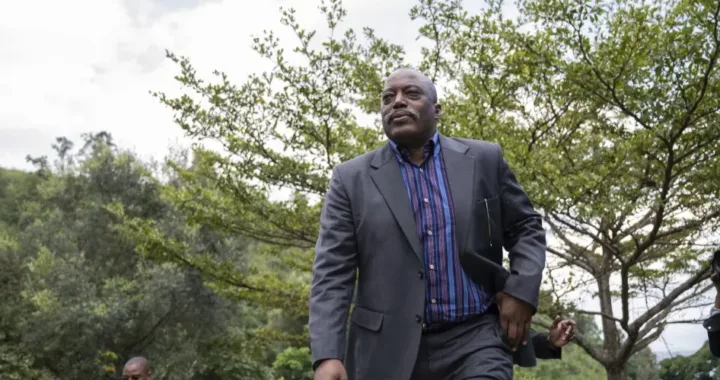 Badinter, Kabila, Tshisekedi : la justice n’est pas la vengeance
Badinter, Kabila, Tshisekedi : la justice n’est pas la vengeance 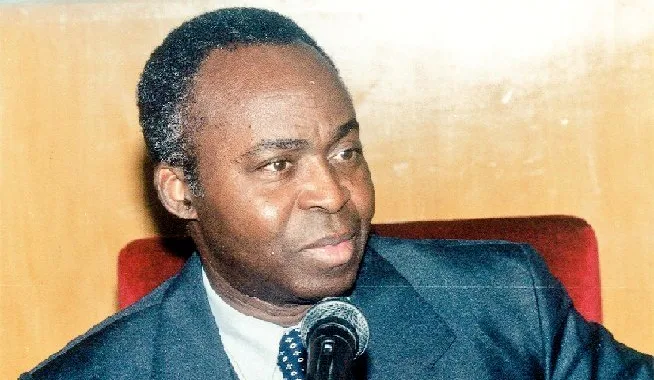 Dominique Sakombi Inongo, quinze ans déjà : héritage vivant, avenir commun
Dominique Sakombi Inongo, quinze ans déjà : héritage vivant, avenir commun 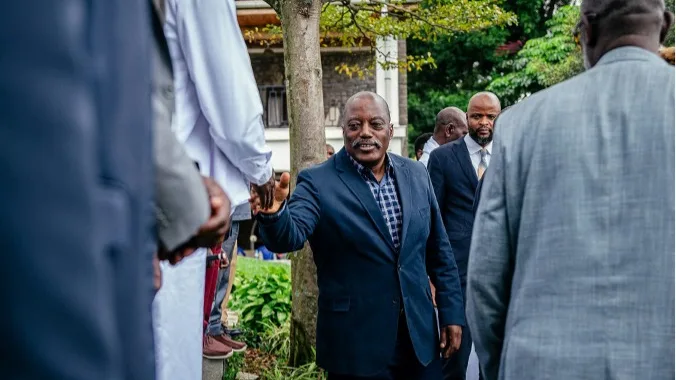 En RDC, Joseph Kabila met Félix Tshisekedi en garde : « Tôt ou tard, la supercherie sera évidente pour tous »
En RDC, Joseph Kabila met Félix Tshisekedi en garde : « Tôt ou tard, la supercherie sera évidente pour tous » 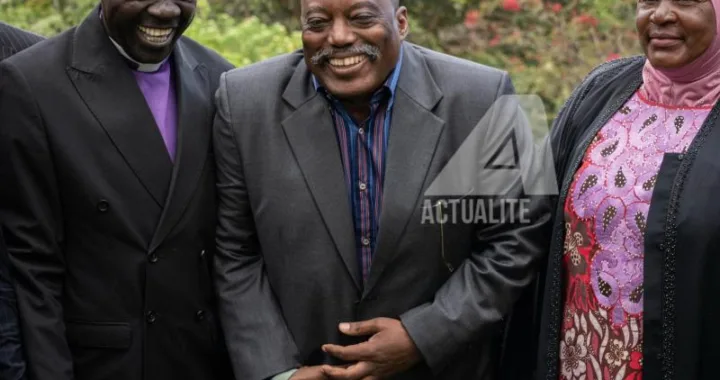 RDC : l’opposition se dresse contre la peine de mort requise contre Joseph Kabila
RDC : l’opposition se dresse contre la peine de mort requise contre Joseph Kabila 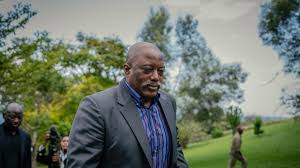 Supporters of ex-DRC President Kabila denounce proposed death penalty as ‘sham’
Supporters of ex-DRC President Kabila denounce proposed death penalty as ‘sham’